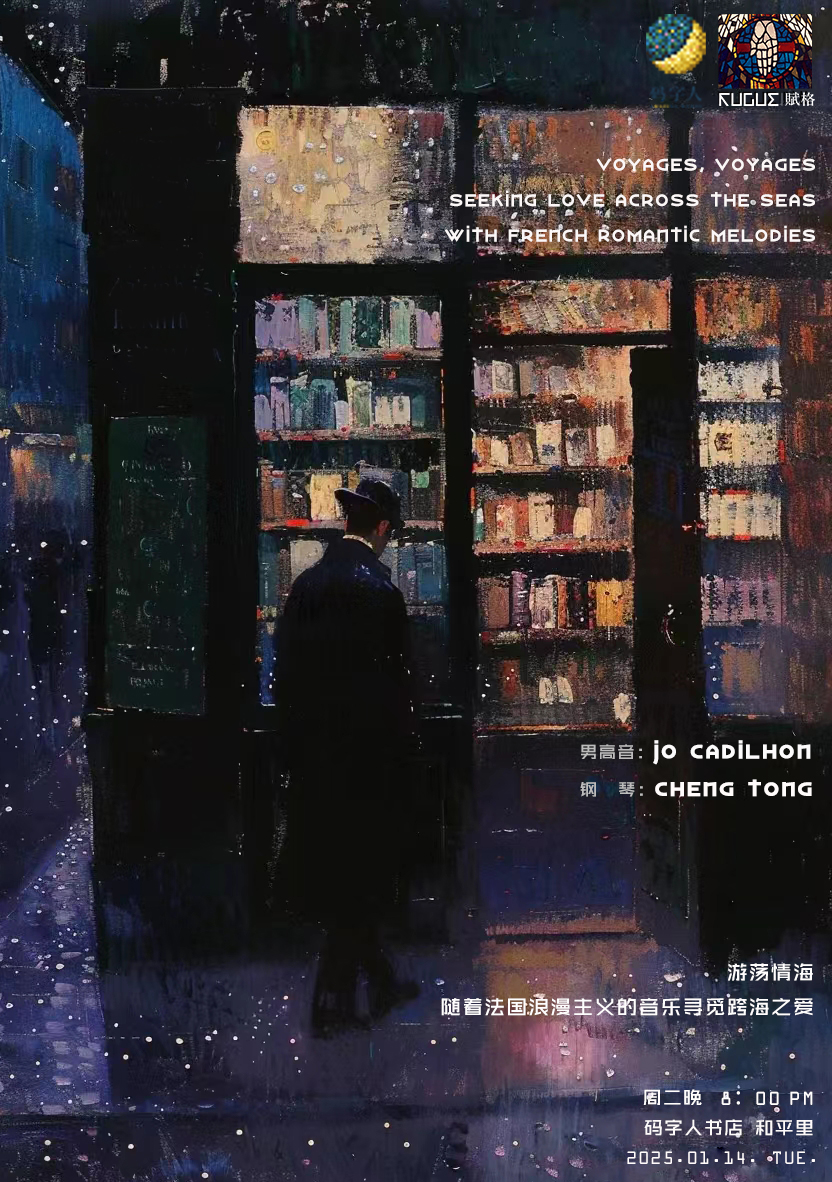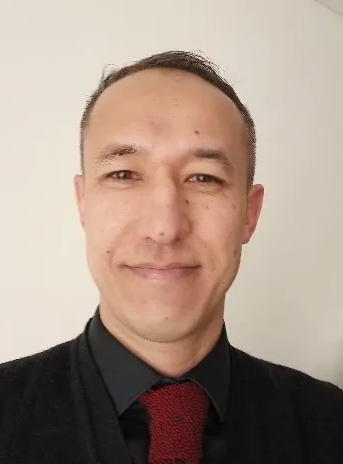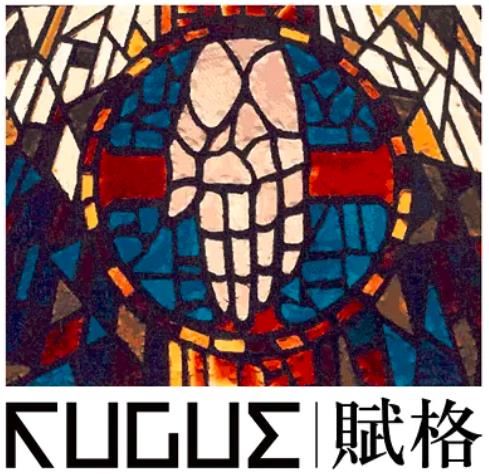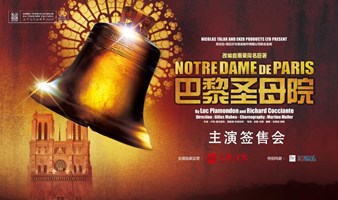
1.14.周二晚,“赋格”邀请到两位老朋友,男高音 - Jo Cadilhon,钢琴 - 程通。
法国男高音Jo Cadilhon及中国钢琴家程通同台演绎法国浪漫主义时期作品。
Following popular request after their first recital on the theme of travel in December 2024, French tenor Jo Cadilhon and Chinese pianist Cheng Tong invite you to join their second trip of French Romantic and early 20th century music.
继2024年12月法国男高音歌唱家Jo Cadilhon和中国钢琴家程通为大家精彩演绎了第一场旅行主题音乐会后,在新年伊始应大家诚邀他们将再次与您共赴法国浪漫主义与20世纪早期音乐之旅。
2024 is also the centenary of the death of Gabriel Fauré (1845-1924) who was a prolific French composer and organist. The music presented during the recital will therefore feature Fauré predominantly. Apart from Hector Berlioz who was active in the first half of the 19th century, most of the melodies on the programme were composed in the second half of the 19th century or in the beginning of the 20th century by French composers Emmanuel Chabrier, Claude Debussy, Henri Duparc, Gabriel Fauré, Francis Poulenc and Maurice Ravel. While most of the songs on the programme were written for the concert hall or the music room of enlightened sponsors and music lovers, two songs stand out by their more popular destination. Towards the end of the programme, “Chandernagor” by Guy Béart is an example of the 1950s tradition of cabaret popular songs, and the Burmese song by André Messager is taken from a staged operetta.加布里埃尔·福雷(Gabriel Fauré,1845-1924),是一位多产的法国作曲家和管风琴演奏家,今年也是福雷逝世百年纪念。因此,在本次音乐会中,福雷的作品居多。除了活跃于19世纪上半叶的埃克托·柏辽兹(Hector Berlioz)外,节目中的大多数乐曲都是由法国作曲家创作于19世纪下半叶或20世纪初,其中包括埃马纽埃尔·纱布列(Emmanuel Chabrier)、克劳德·德彪西(Claude Debussy)、亨利·杜帕克(Henri Duparc)、加布里埃尔·福雷、弗朗西斯·普朗克(Francis Poulenc)和莫里斯·拉威尔(Maurice Ravel)。本场演出中大部分歌曲是为音乐厅或音乐爱好者的私人沙龙创作,但其中有两首歌曲在当时社会广为流行。在节目尾声,将为大家呈现盖伊·贝亚尔(Guy Béart)20世纪50年代法国卡巴莱风格的《尚德纳哥尔》(Chandernagor)以及安德烈·梅萨热(André Messager)轻歌剧中的一首的缅甸歌曲。

In the first part of the programme, we take you on a boat cruise around the Mediterranean. Most of the songs in this first half deal with the sea; you will be able to feel the waves in the rhythms of the piano part. Imagine setting off from Marseille and sailing with Duparc’s invitation to travel around Italy up to the first stop in Venice where you will be rowed along the Grand Canal and Rialto quarter by Fauré’s gondolier singing a “Barcarolle”. From there, the sailors take you due South on the rolling seas to Tunisia where you will sail through the Saharan dunes mounted on a dromedary thanks to Poulenc. The ship will then sail slowly back North to Spain; Fauré can also represent waves as soothing as a cradle. You can wake up again with an exciting horse ride across the countryside in search of Rosemonde’s mysterious manor-house (notice how Duparc composed the piano part to mimic the horse’s galop and walking stride). Another sailing ship flying Berlioz’s flag will take you anywhere you want, although not to the island where one finds love. The journey ends back in Southern France where you can stroll with Poulenc along the nostalgic pathways of love.
在上半场演出中,我们将带您乘船巡游地中海。此部分的多首歌曲都与大海有关,几乎能让您感到来自钢琴的波浪起伏。您可以想象一下从马赛出发,伴随邀请您同行的杜帕克环游意大利。抵达首站威尼斯后,您将随着福雷唱着一首船歌的船夫划行于大运河和里亚托区。接下来,水手们带您向南航行至突尼斯。在普朗克的作品中,您将骑着单峰骆驼穿越撒哈拉沙漠。之后,船缓缓向北驶回西班牙。这时,福雷的音乐同样会展现出如摇篮般舒缓的波浪带您入梦。醒来之后,您可以在杜帕克模仿马步和疾驰的钢琴伴奏下,享受一段乡村骑马之旅,寻找罗丝蒙德神秘的庄园。乘上另一艘飘扬着柏辽兹旗帜的船将带您前往任何想去的地方,唯有到不了的就是能找到爱的岛屿。我们的旅程结束在法国南部,在这里可以随普朗克的旋律漫步在充满爱情的小巷中。The second half of the programme is a long journey East in search of love. Although most of the composers featured in this recital had never left France, their imagination helped them compose music with exotic-sounding melodies and harmonies. Some were also influenced by the exotic theme of the poem they set to music. Finally, Debussy for one, was a keen student of Asian traditional music, and transposed some of its features into his compositions, as you will hear in the last muted piece on the programme.下半场曲目是一场向东寻爱的漫长旅程。虽然我们今天曲目的作曲家大都未曾离开过法国,但他们凭他们的丰富想象力和配乐诗歌异国风味的影响创作出了带有异国风情的旋律与和声。德彪西尤其热衷于研究亚洲传统音乐,并将其中一些特点融入他的作品中,您可以在节目的最后一首柔和的乐曲中听到这些特点。In this journey East in search of love, we start with Fauré in Italian Tuscany where the singer serenades his lover and begs her to come back to him. We then travel to the Eastern Mediterranean: our large ship is being rowed along Chabrier’s rolling seas towards the happy isle where lovers will sleep contented below shady orchard trees. Another step eastward to Ispahan in Iran where the blooming and odorous roses in the famed gardens of the city cannot compare to the fair Leila. Ravel then takes us South to the island of Madagascar for a night of passionate love with the beautiful Nahandove. There are then many lovely secrets to discover among the five former French colonial counters of India, as mischievously described by Béart in “Chandernagor”. From India we move further East with Messager to Burma whose Maharajah will sing a love song in “Burmese”. The location of the action set to music by Duparc in “In a former life” is not explicit, but with its basaltic grottoes, the rolling waves of the ocean and slave servants, we invite you to imagine yourself on the islands of Indonesia. Finally, we’ll end in China with the distinctly pentatonic harmonies of Debussy’s piano to lull you to sleep after this long journey East in search of love.在这段向东寻找爱的旅程中,我们从福雷的作品开始,在意大利托斯卡纳地区,歌者向他的恋人唱起小夜曲,恳求她回到他的身边。下面我们前往地中海东部,乘上查布里耶的船,驶向充满快乐的岛屿,在那里恋人们可以在果树荫下安然入睡。我们再继续东行至伊朗伊斯法罕的著名花园,其中盛开的芬芳玫瑰也难以与美丽的莱拉媲美。接下来,拉威尔带我们南下至马达加斯加岛,在夜里与美丽的娜翰多薇共度一段激情的时光。贝亚尔在“尚德纳哥尔”带有淘气地描绘了法国从前在印度的五个殖民地的神秘之美。从印度继续向东,我们跟着梅萨热来到缅甸,听国王在《缅甸之歌》中唱起情歌。在杜帕克的《前世》中,场景描述不太清楚,但我们可以通过玄武岩的洞窟、海洋的滚滚波涛以及奴隶和仆人的描写,几乎可以把自己置身于印度尼西亚岛屿生活之中。最后,我们将在中国结束这段旅行,伴随德彪西带有中国“宫商角徵羽”特色的钢琴声,伴您在这场《向东寻爱》的漫漫旅程结束后安然入睡。
时间:2025年1月14日 周二晚 8:00开始
地点:码字人书店
东城区和平里北街6号远东仪表院内
15号楼南侧最东头109室码字人书店
入场:130 RMB/人(含一杯无酒精饮品)

Jo Cadilhon started playing piano as a child and passed ABRSM Grade 8. He has also been singing continuously for the past 25 years as a tenor in vocal ensembles and choirs of various sizes in all the countries where his work as an agricultural economist has led him. Starting from 2010, he has taken regular private lessons with experienced voice teachers (soprano Mary Saint-Palais from the Conservatoire Rueil-Malmaison, barytone Michel Philippe who sang at Paris Opera from 1972 to 1991, tenor Gorka Robles-Alegria). They have all helped him improve his vocal technique. Jo has especially tasked them to teach him the art of pronouncing and singing French to make the all-important words intelligible.Jo Cadilhon幼年学习钢琴,通过ABRSM英皇八级考试。虽然他本职为农业经济学家,但在随着工作而参加各地许多大大小小的合唱团,并演唱男高音声部。从2010年开始,他还师从资深声乐大师进行深造,其演唱技术得到进一步提升,同时特别专注法语在演唱中的发音以更清晰准确表现出曲目中的诗词的含义。

Tong Cheng,a solo pianist and collaborative pianist, began his music education at the age of eight and has performed in many countries. He has been awarded the 1st prize in the Hong Kong International Piano Competition and the National Scholarship from the Ministry of Education of China. In 2019, He got a doctoral degree in the University of Minnesota (Twin Cities), USA. Currently, he is working at the China Conservatory of Music. Tong is interested in spreading his passion for both classical music and Chinese traditional music.程通是一名独奏、合奏钢琴家,八岁开始正式接受音乐教育,在许多国家进行演出,曾经荣获香港国际钢琴大赛第一名以及教育部奖学金。2019年获得美国明尼苏达大学博士学位。目前,任职于中国音乐学院。程通先生将全部热情致力于推广西方古典音乐和中国传统音乐。
Part I – On a Mediterranean cruiseL’invitation au voyage (An Invitation to Travel), Henri Duparc on a poem by Charles Baudelaire 《游行之邀》,度帕克,选自夏尔·波德莱尔的诗歌 – 游行之邀,度帕克Barcarolle, Gabriel Fauré op.7 no.3 (1873) on a poem by Marc Monnier 《船歌》,加布里埃尔·福雷 op.7 no.3 (1873),选自马克·蒙尼耶的诗歌Les matelots (The Sailors), Gabriel Fauré op. 2 no. 2 (1867) on a poem by Théophile Gautier 《船夫们》,加布里埃尔·福雷 op. 2 no. 2 (1867),选自泰奥菲尔·戈蒂耶的诗歌Le dromadaire (The Dromedary), Francis Poulenc, Le bestiaire ou Cortège d’Orphée FP 15a no. 1 (1919) on a poem by Guillaume Apollinaire -《单峰骆驼》,弗朗西斯·普朗克,《动物志或俄耳甫斯的队列》FP 15a no. 1 (1919),选自纪尧姆·阿波利奈尔的诗歌Les berceaux (The Cradles), Gabriel Fauré op.23 no.1 (1879) on a poem by René-François Sully-Prudhomme 《摇篮》,加布里埃尔·福雷 op.23 no.1 (1879),选自勒内-弗朗索瓦·苏利·普吕多姆的诗歌Le manoir de Rosemonde (Rosemonde’s Manor), Henri Duparc (1880) on a poem by Robert de Bonnières 《罗丝蒙德的庄园》,亨利·杜帕克 (1880),选自罗伯特·德·博涅的诗歌L’île inconnue (The Never-To-Be-Found Island) Hector Berlioz, Les nuits d’été op. 7 no. 6 (1841) on a poem by Théophile Gautier 《从未寻获之岛》,埃克托·柏辽兹,《夏夜》op. 7 no. 6 (1841),选自泰奥菲尔·戈蒂耶的诗歌Les chemins de l’amour (The Pathways of Love), Francis Poulenc FP. 106 (1940) on a poem by Jean Anouilh 《爱情阡陌》,弗朗西斯·普朗克 FP. 106 (1940),选自让·阿努伊的诗歌
Part II – Love Journey to the East -Sérénade toscane (Tuscan Serenade), Gabriel Fauré op.3 no.2 (1878) on a poem by Romain Bussine 《托斯卡纳小夜曲》,加布里埃尔·福雷 op.3 no.2 (1878),选自罗曼·布西纳的诗歌L’île heureuse (The Happy Isle), Emmanuel Chabrier (1892) on a poem by Éphraïm Mikhaël 《幸福之岛》,埃马纽埃尔·查布里耶 (1892),选自埃弗拉伊姆·米凯尔的诗歌Les roses d’Ispahan (The Roses of Ispahan), Gabriel Fauré, op.39 no. 4 (1884) on a poem by Charles Leconte de Lisle 《伊斯法罕的玫瑰》,加布里埃尔·福雷 op.39 no.4 (1884),选自查尔斯·勒孔特·德·李尔的诗歌Nahandove, Maurice Ravel, Chansons madécasses M. 78 no. 1 (1926) on lyrics by Evariste Parny 《纳罕道福》,莫里斯·拉威尔,《马达加斯加之歌》M. 78 no.1 (1926),选自埃瓦里斯特·帕尼的歌词Chandernagor (Chandannagar), Guy Béart (1957) –Chant birman (Burmese Song), André Messager, L’amour masqué (1923) on lyrics by Sacha Guitry 《缅甸之歌》,安德烈·梅萨热,《假面之爱》 (1923),选自萨沙·居特里的歌词La vie antérieure (In a Former Life), Henri Duparc (1884) on a poem by Charles Baudelaire 《前世》,亨利·杜帕克 (1884),选自夏尔·波德莱尔的诗歌En sourdine (Muted), Claude Debussy, Fêtes galantes L. 86/(80) no. 1 (1891) on a poem by Paul Verlaine 《静音》,克劳德·德彪西,《优雅的节日》L. 86/(80) no.1 (1891),选自保罗·魏尔伦的诗歌












 FUGUE | 赋格
FUGUE | 赋格

















